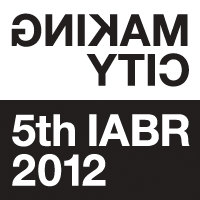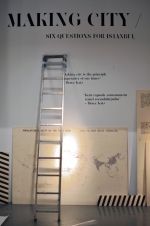The International Architecture Biennale Rotterdam
The international Architecture
Biennale Rotterdam (IABR) was founded in 2001, in the conviction that architecture is
a public concern. It is therefore that the IABR focuses on the future of the
city, where 80% of mankind will be producing 90% of its wealth.
Our cities will have to be
vigorous, sustainable and livable for everyone. They will have to find a right
balance between people, planet and profit.
How to get to the future is a
common challenge, cities will need to exchange ideas, knowledge, expertise and
best practices. That is why the IABR connects Rotterdam with the world, and the
world with Rotterdam. The IABR generates ideas and proposals, and produces
exhibitions, conferences, films, books, lectures and debates. It commissions design-based
research and the IABR’s Project Ateliers are actively involved in “making
city”: in Rotterdam but also in and with cities such as Istanbul and São Paulo.
The last three IABR editions, Power, Open City and Making City, have explored ongoing rapid
urbanization and its consequences, while staking out a position for
architecture and making a case for what design may effectuate. The next two
editions take it one step further. The need to design our future habitat in
terms of a sustainable balance between demographic, ecological and economic
concerns, between people, planet and profit, will give direction to the program
of the 6th and 7th IABR. While the 6th edition
will focus on the ecology-side of the triangle, the 7th will
concentrate on the economy.
The 6th IABR: URBANbyNATURE
will study the city through the lens of landscape architecture. When we scrutinize
the relationship between city and nature, or even, when we explore city as nature, as a metabolism, the analysis
may produce instruments that can be applied to guide the design, planning and
governance of our future cities. Necessary because, in the words of the Curator
of the 6th IABR, Dirk Sijmons, “…we can only solve our ecological
problems when we solve our urban problems.”




